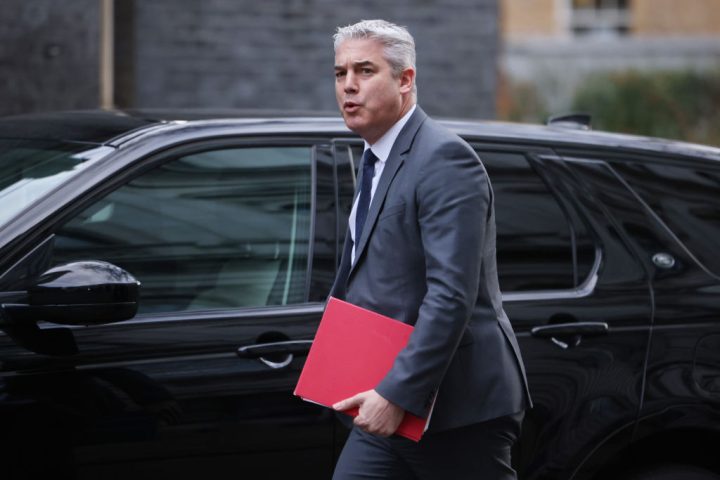Why haven’t ministers sent their submissions to the independent pay review bodies for their sectors? That’s the question being asked of Education Secretary Gillian Keegan and Health Secretary Steve Barclay, both of whose departments have missed their deadlines for submissions on next year’s pay settlement.
Some hope that a more generous pay settlement for next year might make it harder for trade unions to continue striking
Keegan was out and about on the airwaves dealing with the start of the teaching strikes this morning, and explained that the education department had ‘halted’ the submission on future pay. She told the Today programme:
‘We want to keep open those discussions about future pay and I didn’t want to set something while we could still have constructive discussions.’
Barclay was asked a similar question when he appeared before the Health and Social Care Select Committee yesterday. He offered a little more detail, saying:
‘Once we completed ours, some time ago, there’s been a need to wait for other departments to also have those discussions. That is, across government, a process co-ordinated by the Treasury. And once the Treasury is happy for the department to submit this, we are ready to do so.’
Some in Whitehall hope that a more generous pay settlement for the next year might make it harder for trade unions to continue a programme of strikes. If voters see that workers are getting more money for the next year they will wonder why there are still picket lines.
The current walkouts are about the pay settlement for 2022/23, and there is widespread public support for nurses and teachers in particular, with most voters blaming the government for the disruption rather than the unions.
In both sectors, the disputes have been coupled very effectively to the state of the public services the union members work in. The public can see how much of a crisis the NHS is in every day, not just during strikes, and while parents don’t want their children to miss even more lessons after a good few years of Covid disruption, they can also see how much their schools are struggling financially at the moment. But some Tories are hopeful that if the Treasury agrees to submissions from departments recommending a pay rise that is at least closer to inflation, then they can start to undermine the public support.
The current Treasury position on the 2023/24 pay offer is that pay should not rise by more than 3.5 per cent in order to keep a lid on inflation. There are still concerns within both health and education that any raise would have to come out of existing budgets and would therefore impact still further on the limited resources staff have to work with. Even when the submissions are in, this is going to be an extremely difficult battle for ministers – and likely an unpopular one too.







Comments